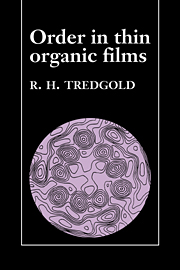Book contents
1 - Introductory material
Published online by Cambridge University Press: 21 September 2009
Summary
The scope of this book
The major scientific advances which have taken place since the Second World War have, in some cases, had little influence on everyday life while, in other cases, they have had the most profound effect on it. Thus, for example, particle physics and astronomy have revolutionised our basic concepts of the structure of matter but have had only minor effects on the life of the non-specialist. On the other hand there are two particular fields of study whose influence has affected the inhabitants of all civilised societies. One of those is solid state electronics and the computer revolution which it has given rise to. The other is the advance in biochemistry and organic chemistry which has provided the physician with a large range of effective drugs and has transformed medicine from an art to an applied science. It is thus not surprising that the idea has arisen that a synthesis of these two fields might bring about remarkable new advances. The name molecular electronics has been proposed for this concept though different people have rather different ideas as to what is meant by this expression.
To give effect to this concept it is necessary to design and construct molecules which have certain desired physical properties and then to learn how they can be assembled in particular well ordered ways. The first problem is the province of the chemist and here considerable progress has already been made.
- Type
- Chapter
- Information
- Order in Thin Organic Films , pp. 1 - 13Publisher: Cambridge University PressPrint publication year: 1994



